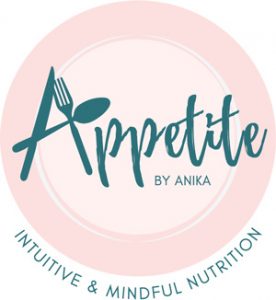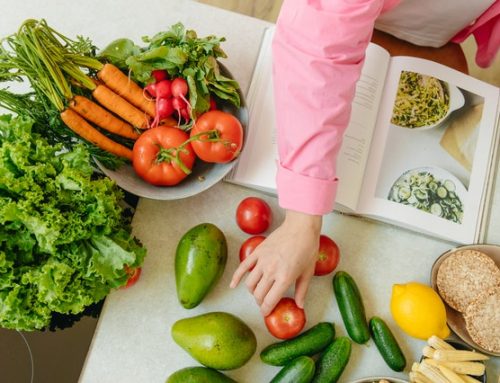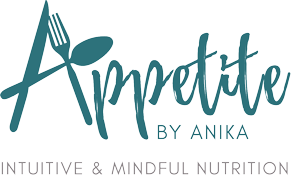In Australia, we are in winter which means most of us are cocooned indoors and some are still working from home. We are going through some unprecedented times. This isolation period has left people feeling anxious and overwhelmed. A lot of us are now thinking about our health more than ever. We all know healthy eating is important for wellness. So, this presents us with a window of opportunity to set up healthier habits for better health. Here are 7 ways to prioritise your wellbeing in quarantine:
- Focus on whole foods
While there is no single food or nutrient that can boost your immunity or prevent you from contracting a virus, it’s still important to continue eating foods that are wholesome and rich in nutrients. However, research has shown that improving your diet can help with supporting optimal immune function as there is an array of nutrients which can support our immune systems. Some examples include protein, which helps with repair and recovery, vitamin A, C and E, and minerals such as zinc and iron.
To make our meals nutritious, we should be eating from the different food groups. This includes eating the rainbow (fruit and vegetables), wholegrains, proteins, healthy fats, gut friendly foods and staying hydrated. Fresh produce may be hard to source so make use of canned and frozen foods– look for no added or reduced salt options.

2. Cook meals at home
We all know that it’s a cheaper option. Research shows that cooking meals at home is associated with better diet quality. We can’t control the outside situation or circumstances we are in but we do have control of what goes on our plate. You can use this time to try a new ingredient or learn a new recipe. Stay curious and experiment a little. Allow yourself to feel empowered in the kitchen and focus on the things you can do. This is an opportunity to improve your cooking skills.
Having said that, it’s totally okay to take a break from cooking if you need it. Ordering takeaway can also support your local business. If you are looking for healthier options, stick to stir-fried, grilled or baked options (rather than deep-fried) and order at least one veggie dish or salad to share.
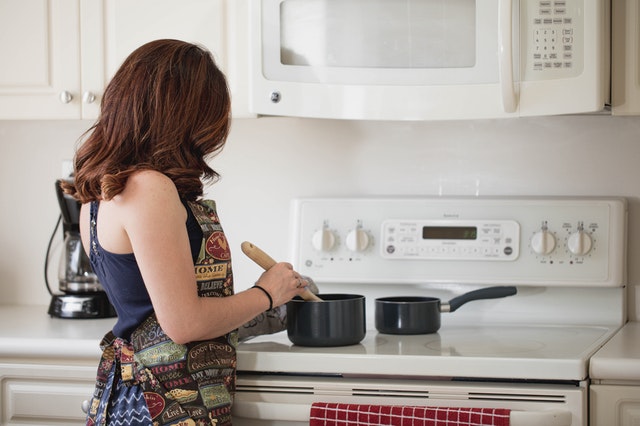
3. Listen to your body
When you are feeling hungry, ask yourself if you are feeling physical hunger or emotional hunger. The latter is when we feel hungry as a result of feeling other emotions. For some of us, we tend to eat less when we are feeling stressed but some of us tend to eat more. We may be overeating due to boredom or sadness. Snacking is an issue sometimes when we work from home – we snack because we are bored or in need of a break or simply because we have it near us.
We tend to resort to comfort foods during stressful times so it is important to be mindful of your actual hunger levels. If you are finding yourself getting hungry during the day, try to change up your tasks. Take a break or go out for a walk. Distract yourself for 20 mins with another activity. If you are still hungry after this period, have a wholesome snack. Some great options include a piece of fruit, yoghurt, cheese and crackers etc. It’s totally okay to eat those ‘sometimes’ food like chocolate, biscuits and cake but try to limit the purchase and don’t stockpile them in the pantry. Enjoy these foods mindfully and without guilt.

4. Set up a routine
Without a routine, your meals and snacks could merge into one and you could find yourself grazing all day. Having a routine will give you a sense of control and provide structure to your day.
Set aside some time on the weekends to do some meal prep. Try to plan at least one or two main meals so you are better organised on weekdays. Plan your groceries (write a shopping list which includes some pantry staples, frozen foods for convenience) and keep a few healthy snacks at hand so you have something to treat that afternoon slump. This is also a great time to take a break from work and get your steps up!
Most of us tend to work longer hours when working from home but try to clock off after a certain time. This will help you maintain work-life balance, boost productivity and also allow time for cooking, resting and exercising.

5. Stay hydrated
Make water your choice of drink. Hydration is important as it helps is to get rid of waste and toxins. Make sure to keep a bottle filled up at your work station. You can add flavour using mint, lemon, cucumber, citrus fruit etc.
It is quite common to mistake thirst for hunger. This is because some of the symptoms of mild dehydration (i.e. headache, fatigue, lightheadedness and difficulty concentrating) can resemble symptoms of hunger. A 2016 study showed that poor hydration was associated with higher body mass index (BMI) in adults which was the first study to show this relationship at a population level.

6. Try something new
As most of us are spending more time at home, it gives us an opportunity to ramp up or learn new skills. Pull out favourite your cookbooks or look up new recipes on the internet/ social media. It’s a great way to get the whole family involved and it’s a very affordable activity to do.
Cooking at home is more economical. A 2014 study has shown that cooking frequently was associated with healthier eating patterns and was found to have a positive influence (such as increased knowledge and confidence). We are more likely to eat higher amounts of fruits/veggies and meals with lower energy intake. Check out recipes from Australian Healthy Food Guide and Dietitians Australia if you need some inspo.
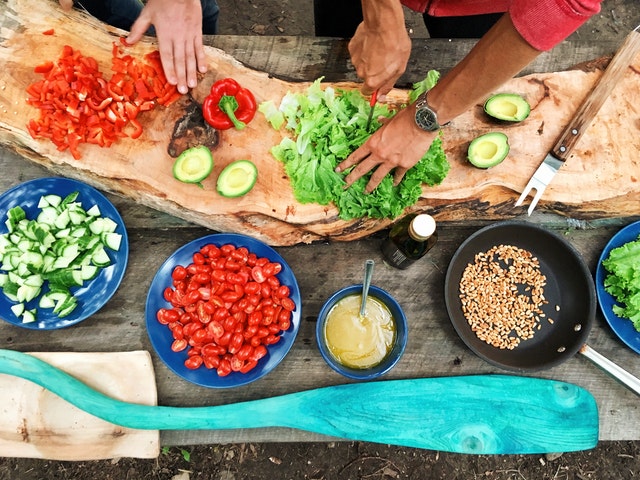
7. Incorporate movement
Aim to get around 30 mins of exercise on most days of the week. You can also set up a workout area at home by purchasing a yoga mat and dumbbells. Adding movement in your day will boost your endorphins (happy hormones) and help you get in some vitamin D if you are out during sunny hours (most Aussies don’t get enough in winter.) Go out for a walk during your breaks and call up a friend or listen to a podcast to make this activity more enjoyable.

Finally, remember to be kind to yourself and let go of the guilt for any recent slip ups. Don’t be too hard on yourself. If you are struggling or have gained weight recently, know that you are not alone in this. It’s okay to get support and ask for help. Reach out to your family and friends. You can also some help from a professional. See an Accredited Practising Dietitian – they can give you tailored dietary advice, help you with weight loss goals and manage or prevent chronic disease.
